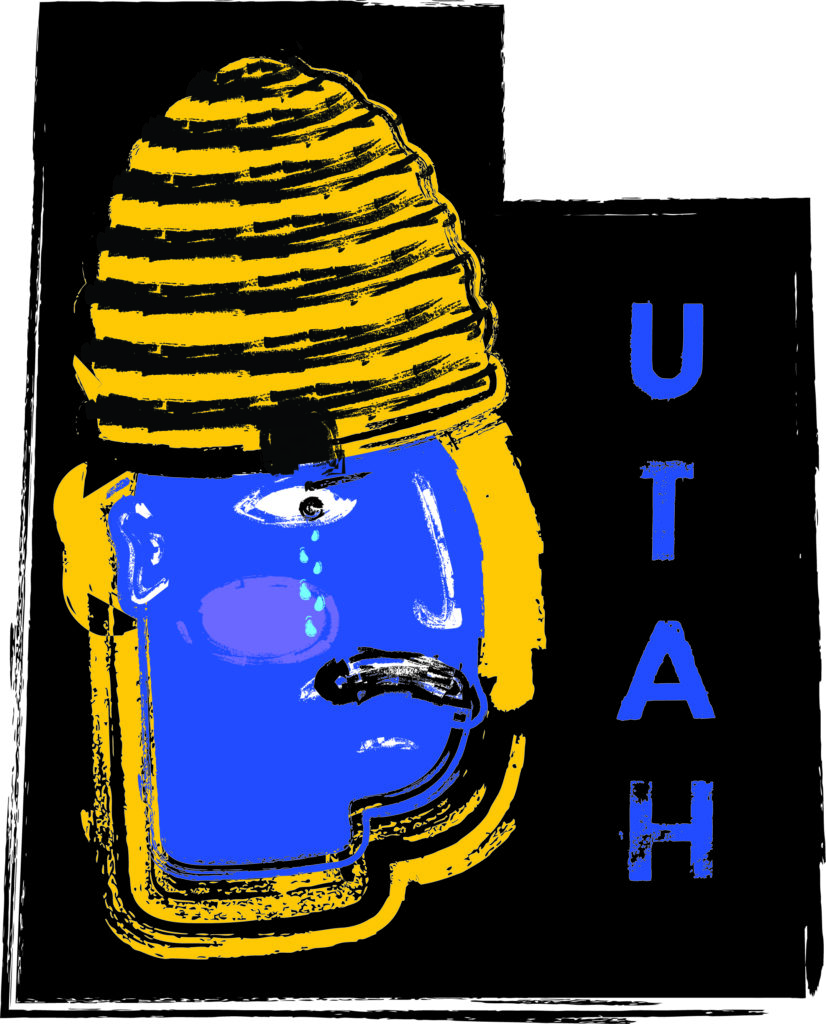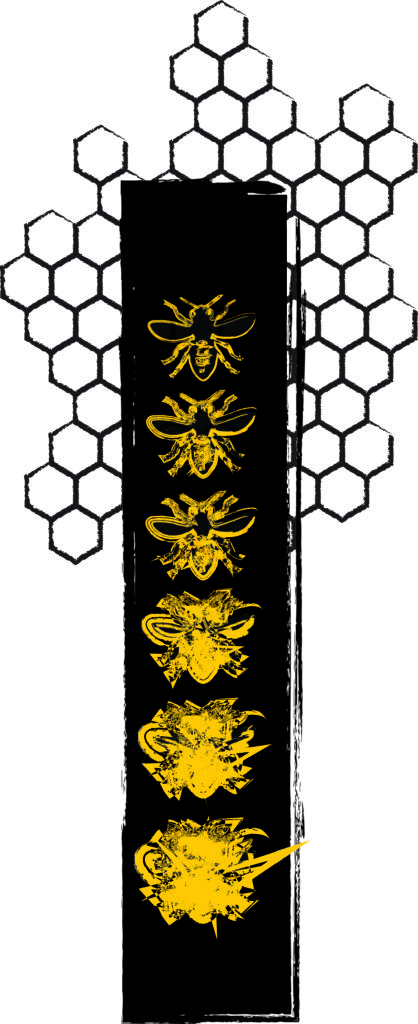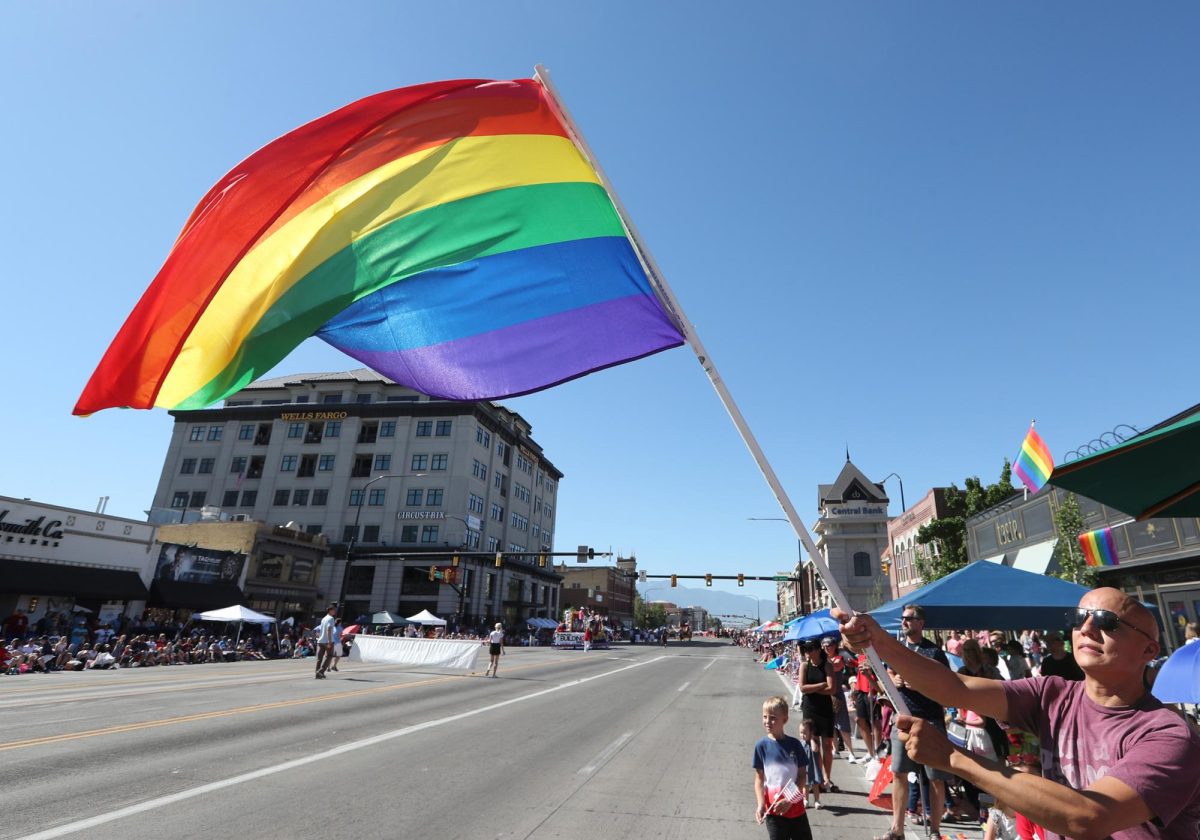I was born and raised in Syracuse, five minutes from the Great Salt Lake. I was carted around on camping trips and bike rides around Southern Utah with my dad before I could even walk. My family gets together every Sunday and I was raised on a farm littered with peacocks. I love the smell after it rains and driving past Cedar to see red rocks for the first time. I was born here and I plan to stay here. I love Utah, and that is why I want it to change.
Utah has the highest rate of child sex abuse in the country. We have a skyrocketing suicide rate amongst our teens. Utah has the lowest spending per student in our education system.
We have an increasing number of babies being born addicted to opioids, and instead of fighting these addictions we try to push the problem under the rug.
Utah has the seventh-highest drug overdose rate in the U.S. 6 Utahns die every week from opioid overdose. According to the Utah Department of Health, 80 percent of heroin users started with prescription opioids.
We have increased risk for preventable health problems because of pollution. According to the American Lung Association, Salt Lake City and Logan both rank on the top 10 most polluted U.S. cities.
Utah’s human sexuality instruction is abstinence-based and teachers are required to present a strong abstinence message. A study done by Advocates for Youth in 2010 showed that students who participated in abstinence-only programs were no more likely to abstain from sex than students given comprehensive sex education programs, and they were about 50% more likely to experience pregnancy in their teens.
Although Utah has the seventh-highest LGBTQ population in the U.S., we are one of only eight states to censor LGBTQ topics in schools. Before “no homo promo” laws were repealed, teachers were prohibited from discussing LGBTQ issues and could even be suspended for bringing them up in the classroom.
92 percent of LGBTQ youth from Utah report to hear “constant negative messages about being LGBT.” 29 percent of LGB children and teens will attempt suicide, compared to 6 percent of non-LGB kids. Trans youth suicide rates are even higher.
The Centers for Disease Control and Prevention recommends that all states collect data about teens’ sexual orientation to help prevent suicide. Most states follow these recommendations by giving high school students a national survey that asks about their sexual orientation.
But strangely, Utah doesn’t collect data on LGBTQ teens. Between 2011 and 2016, teen suicides in Utah almost doubled. Our officials claim to want to tackle our youth suicide epidemic, yet they are totally in the dark when it comes to understanding teen suicides and how to prevent them. Our health and school programs can’t approach the problem when they don’t know how many LGBTQ children live in Utah’s communities.
50 percent of Utah’s homeless youths are LGBTQ, compared to the national average of 20 percent. This is because they face a higher risk of becoming homeless when they’re kicked out of their homes or when they run away.
Utah ranks the highest in the nation for the percentage of adults with mental illnesses, with 22.3% of adults reporting mental illnesses. According to Leslie Klein, a certified peer specialist with Wasatch Mental Health, this is because Utah has a perfectionist culture. Because perfection is unattainable, people lose sigh of their accomplishments and become depressed.
It’s also reported the stigma around mental health in Utah is among the highest in the nation, with only 40% of adults with mental illness seeking treatment. Here, people with serious mental illnesses die an average of 29 years earlier than people without mental illnesses.
Another contributing factor to Utah’s mental health epidemic could be related to religion. Approximately 43% of Utahans with mental health disorders reported to seek advice from religious advisers, but this can be dangerous as religious advisors are not trained professionals. If you are suffering from a mental illness, there is no shame in seeking help.
Of course, we are not without hope. A study done in 2016 showed Utah has among the lowest percentage of homelessness in the country. We have the second-lowest employment rate. Utah has the highest rate of volunteerism in the nation.
Although we have the fewest charities per person, Utah is the most charitable state, donating an average of 7% of their annual income to charities.
Utah also has a rising rate of non-profit organizations, specifically advocating for abuse and mental health.
For example, Restore our Humanity, a new organization advocating for survivors of sexual abuse, pledges to provide therapy and legal counsel for survivors and their family.
Equality Utah fights for policies to prevent harassment and discrimination against LGBTQ youth. They also fight for juvenile justice reform policies to protect LGBTQ minors in state custody.
Because Utah has the second-highest population growth in the U.S., it’s clear we have to face these problems head-on. Utah was reported as the happiest state in the country in 2012, yet our mental illness statistics continue to climb. Our teen and child suicide rates are disturbing.
We do not have to accept these statistics. Change starts with us, with our family and friends, when we fight against stigmas. Instead of chasing perfection, we can reach out to those who need help and strive to lift each other up.





















